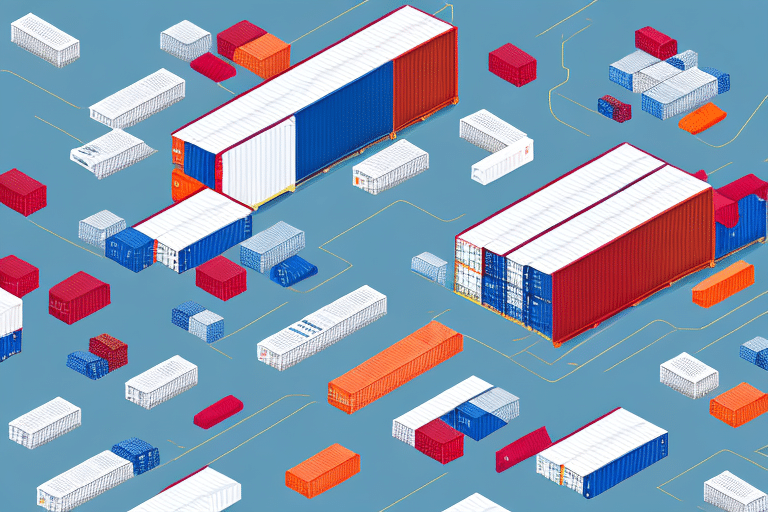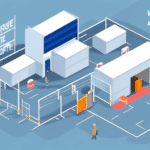What Is a 3PL Warehouse? An Overview of Third-Party Logistics
If you're a business owner, you're likely always searching for ways to optimize your supply chain and minimize overhead costs. In the transportation and logistics industry, the term 3PL warehouse is crucial. This article breaks down everything you need to know about third-party logistics (3PL) warehouses, including their definition, importance, and the benefits they offer.
Definition and Importance of 3PL Warehousing
3PL stands for third-party logistics. 3PL warehousing providers are companies that specialize in offering logistical support to businesses that lack the resources, time, or expertise to manage their supply chain and warehousing operations internally. Essentially, 3PL warehouses act as intermediaries between companies that produce goods and those that need to distribute them. They provide a range of services, including warehousing, supply chain management, and transportation solutions, tailored to the specific needs of businesses.
The Role of 3PL in Supply Chain Optimization
Outsourcing logistics to a 3PL provider allows businesses to focus on their core competencies while leveraging the expertise of logistics professionals. This leads to increased flexibility, efficiency, and the ability to respond swiftly to market changes. According to a report by Inbound Logistics, businesses that utilize 3PL services can achieve significant improvements in supply chain performance and cost reduction.
Evolution of the 3PL Warehouse Industry
The 3PL warehouse industry has undergone substantial changes over the past few decades. Initially focused on basic storage and distribution, 3PL providers have expanded their services to include comprehensive supply chain management and advanced technological solutions. The rise of e-commerce has particularly driven this evolution, necessitating more efficient and flexible logistics solutions to handle increased order volumes and faster delivery expectations.
Impact of E-Commerce on 3PL Services
With the exponential growth of online retail, 3PL warehouses have adapted by offering specialized e-commerce fulfillment services. These services include picking, packing, and shipping orders directly to consumers, often with integrated technology that allows for real-time tracking and inventory management. This shift has been highlighted in industry analyses by Supply Chain Digital, which emphasizes the critical role of 3PLs in supporting the scalability and responsiveness required by e-commerce businesses.
How 3PL Warehousing Works and Its Benefits for Businesses
When a business partners with a 3PL warehouse, they enter into a contract that outlines the specific services to be provided, ranging from storage and inventory management to transportation and distribution. The 3PL provider then manages the logistics operations, ensuring that goods are stored securely, inventory levels are maintained accurately, and products are delivered efficiently as needed.
Cost Savings and Efficiency
One of the primary advantages of utilizing a 3PL warehouse is the potential for significant cost savings. By outsourcing logistics, businesses can eliminate expenses related to maintaining their own warehouses, managing transportation fleets, and employing specialized supply chain staff. These savings can be redirected towards core business activities, fostering growth and innovation.
Access to Advanced Technology
3PL providers invest heavily in state-of-the-art technologies such as Warehouse Management Systems (WMS), Transportation Management Systems (TMS), and supply chain analytics tools. These technologies enable businesses to track inventory in real-time, optimize shipping routes, and gain valuable insights into their supply chain operations. Leveraging these tools can lead to enhanced operational efficiency and better decision-making.
Types of Services Offered by 3PL Warehouses
3PL warehouses offer a diverse range of services tailored to meet the varying needs of businesses. Some of the most common services include:
- Warehousing and storage
- Transportation and distribution
- Supply chain management
- Order fulfillment and e-commerce logistics
- Inventory management and control
- Freight forwarding and customs brokerage
- Value-added services such as labeling and packaging
By selecting specific services, businesses can create a customized logistics solution that aligns with their operational requirements and strategic goals.
Choosing the Right 3PL Warehouse Provider
Selecting an appropriate 3PL warehouse provider is crucial for ensuring the success of your logistics operations. Key factors to consider include:
- Experience and Expertise: Assess the provider’s track record and industry knowledge.
- Technology and Infrastructure: Ensure they utilize advanced systems and have robust infrastructure.
- Scalability and Flexibility: The provider should be able to scale services according to your business growth.
- Cost-Effectiveness: Analyze the cost structures to ensure they align with your budget.
- Customer Service and Communication: Effective communication is essential for smooth operations.
- Reputation and Reliability: Research reviews and testimonials to gauge the provider’s reliability.
By carefully evaluating these factors, businesses can select a 3PL provider that best meets their logistical needs and supports their growth objectives.
The Role of Technology in 3PL Warehousing
Technology is a cornerstone of modern 3PL warehousing, enabling providers to offer efficient and scalable logistics solutions. Key technologies used in the industry include:
- Warehouse Management Systems (WMS): These systems streamline inventory management and warehouse operations.
- Transportation Management Systems (TMS): TMS solutions optimize transportation planning and execution.
- Radio-Frequency Identification (RFID): RFID technology enhances inventory tracking and accuracy.
- Global Positioning Systems (GPS): GPS technology improves the tracking and routing of shipments.
- Cloud Computing and Big Data Analytics: These technologies enable data-driven decision-making and enhanced supply chain visibility.
By leveraging these technologies, 3PL providers can offer enhanced services, improve operational efficiency, and provide valuable insights to their clients.
Future Trends and Challenges in the 3PL Warehouse Industry
The 3PL warehouse industry is continually evolving, driven by emerging trends and facing various challenges:
- Rise of Automation and Robotics: Increased use of automation to improve efficiency and reduce labor costs.
- Emphasis on Sustainability: Implementing eco-friendly practices to reduce environmental impact.
- Integration of Artificial Intelligence (AI) and Machine Learning: Enhancing predictive analytics and supply chain optimization.
- Changing Customer Expectations: Meeting the demand for faster delivery times and higher service levels.
- Regulatory Compliance: Navigating complex international trade regulations and standards.
Addressing these trends and challenges will be critical for 3PL providers to remain competitive and meet the evolving needs of their clients.
Conclusion
3PL warehouses play a vital role in helping businesses manage their supply chain and logistics operations efficiently. By outsourcing these non-core activities to specialized third-party providers, businesses can focus on their core competencies, achieve significant cost savings, and enhance their overall competitiveness in the market. As the 3PL warehouse industry continues to advance and adapt to new trends, businesses must stay informed and choose partners that can support their growth and operational goals effectively.






















